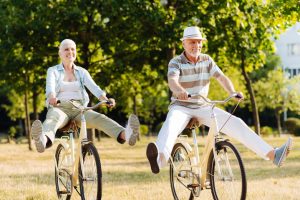Almost one in four adults aged 60 and older who initially reported poor well-being were able to regain optimal well-being within three years. This is according to a study published in PLOS One by Mabel Ho and Esme Fuller-Thomson of the University of Toronto, Canada. The findings underscore the importance of healthy lifestyle choices such as maintaining a healthy body weight, not smoking, being physically active, improving sleep, and preventing or treating chronic diseases. The study also highlights the role of mental, emotional, and social well-being in overall quality of life.
How Well-Being of Older People is Influenced
There is growing interest in understanding what promotes resilience and long-term well-being. Many lifestyle habits can influence the ability to maintain health and happiness, which is defined in this study as a combination of physical, mental, emotional, social, and self-rated well-being, even in the presence of chronic disease. However, only a small number of studies have examined what helps people recover or regain strong well-being after difficult times in later life.
Using data from the Canadian Longitudinal Study on Aging, Ho and Fuller-Thomson analyzed 8,332 adults who did not initially meet the criteria for optimal well-being and surveyed them again three years later, when all participants were at least 60 years old. They found that nearly a quarter of these participants had achieved optimal well-being by the end of this period. Those who already showed signs of mental and emotional well-being at the beginning were almost five times more likely to return to full well-being than those who did not. The likelihood of regaining good well-being was also higher among participants who were younger (under 70 years of age), married, and had an income above the poverty line. Better outcomes were associated with physical activity, not smoking, good sleep, and avoiding chronic conditions such as obesity, diabetes, arthritis, or osteoporosis.
Taking Steps to Strengthen the Resilience of Older Adults
Since all Canadian citizens and permanent residents have access to publicly funded health care, the researchers point out that these findings may not be transferable to countries where medical care depends on ability to pay. They also caution that the findings may not be transferable to low- and middle-income countries. If future research confirms that the associations observed in the current study are causal, policies and interventions that support physical, mental, emotional, social, and self-rated well-being could help older adults regain their optimal well-being.
For example, programs and services can be offered to encourage older adults to adopt active and healthy lifestyles, treat chronic conditions, and prevent social isolation. According to the authors, these measures could play an important role in strengthening the resilience of older adults and enabling them to regain optimal well-being in later life.






